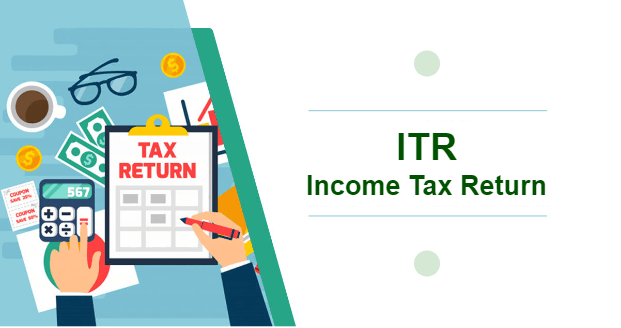What is the full form of ITRITR: Income Tax ReturnITR stands for Income Tax Return. It is an online/offline form submitted by a citizen to the Income Tax Department of India. The paper holds details regarding the income of the particular citizen and the tax required to be paid in that corresponding financial year. The information provided in the Income Tax Return should be of the specific financial year, i.e. starting from 1st April of the current running year to 31st March of the upcoming year. 
The central government formulates the Indian Income Tax Laws. The government had put out the tax on the income of all the citizens who are the individuals, local authority, association of persons, companies, the body of individuals, firms, Hindu Undivided Families (HUFs), LLP and any other artificial juridical person. The laws state that the tax levied through a person relies on his residence status, and tax on their global income is to be paid by a person satisfied as a resident of India. Some specific rules and regulations must be looked after every financial year by taxpayers while filing their Income Tax Returns (ITR). And the accountability of a taxpayer is calculated upon their income. The income tax laws bind every individual and business earning any income to file the income tax return each year. This task of filing a return must be filed before the last specified date. The penalty is charged post due date filing. Is it mandatory to file Income Tax Return?Those whose income exceeds the basic exemption limit will have to pay tax as per Indian tax laws and file their returns accordingly. The rate of Income tax in India is decided by the Central and State Governments along with local authorities like municipal corporations. It is also said that a delay in filing the Income Tax Return will affect the chances of getting a loan or a foreign visa. Those whose incomes don't exceed the basic exemption limit may file 'nil returns', which inform Income Tax Department that the taxpayers are not liable for taxable income for a specific financial year. Who should file Income Tax Returns?As laid down in the Income Tax Act, individuals or businesses lying between specific income brackets are only supposed to pay the Income tax. The following conditions are required to satisfy the compulsion to file ITRs:
The income should be calculated before reducing the amount of deductions permitted under Section 80C and 80U and another type of exemption under section 10. Individuals or groups whose additional tax has been deducted can ask for a refund on the income tax paid by them. The various sources of income are such as:
What for WhomIt is advisable for all citizens of India to file ITR through online/offline mode. There are various forms of ITR which are filled by the people as per the defined conditions, such as:
Due dates for filing the Income Tax Returns:
Next TopicFull Form
|
 For Videos Join Our Youtube Channel: Join Now
For Videos Join Our Youtube Channel: Join Now
Feedback
- Send your Feedback to [email protected]
Help Others, Please Share










